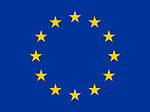Sister Projects

BuiltHub
BuiltHub is a EU-funded project that seeks to develop a roadmap to continuously enhance the data needed to decide on building-related policy and business for involved stakeholders through a community and its data hub. It seeks to positively disrupt policy and market decision making through a continuously community-enhanced evidence base. The BuiltHub community and its platform shall change the way knowledge on the EU building stock is developed and shared, and represent the full range of building stakeholders from across Europe.

domOS
The European Research & Innovation project domOS funded by the Horizon 2020 programme aims at developing and demonstrating an operating system for smart services in buildings.
The objectives of the project will be achieved through international cooperation of eleven partners from five European countries with overall budget of 5 million EUR.

RES4BUILD
RES4BUILD develops renewable energy-based solutions for decarbonizing the energy used in buildings. The solutions are applicable to a wide variety of buildings, new or renovated, tailored to their size, type and the climatic zones of their location. The project adopts a co-development methodology, where the end-users and other relevant stakeholders engage in an interactive process, in which a RES4BUILD system is designed for their buildings with their active participation. In parallel, a full life cycle assessment and cost analysis is carried out, showing from an early stage the real impact of each proposed design.

REScoopVPP
The REScoopVPP project brings different energy communities throughout Europe together to build the most advanced community-driven open smart building eco-system. The main goal of this ecosystem is to enable end-users to lower energy consumption and to use primarily renewable energy whenever available. The ecosystem consists of a Community-driven Flexibility Box (COFY-box) to make existing buildings smarter, as well as a set of community tools that enable cooperatives or other citizen energy communities to offer innovative services.

BIGG
The BIGG project aims at demonstrating the application of big data technologies and data analytic techniques for the complete buildings lifecycle of more than 4000 buildings in 6 large-scale pilot test-beds in Spain and Greece, achieved by:
1) The Open Source BIGG Data Reference Architecture 4 Buildings;
2) An interoperable buildings data specification;
3) An extensible, open, cloud-based BIGG Data Analytics Toolbox.

MATRYCS
MATRYCS visions to address emerging challenges in big data management for energy efficiency in building sector with an open holistic solution aimed at creating a European approach to the Business-to-Business platforms, able to give a competitive solution to the European stakeholders operating in this sector and to open new market opportunities. The overall vision and main objective of MATRYCS is to define and deploy a Reference Architecture for Buildings Data exchange, management and real-time processing, and to translate this reference architecture into an Open, Cloud-based Data Analytics Toolbox. MATRYCS develops and demonstrates in real-life pilots in 11 large-scale demo-sites, 2 test-bed facilities and Digital Building Twins across 9 countries.

MERLON
MERLON introduces an integrated modular local energy management framework for the holistic operational optimization of local energy systems in presence of high shares of volatile distributed renewable energy sources. The scope of the optimization proposed in MERLON expands from the coordination of local generation to the flexibility provision. The objective is to facilitate maximum integration of renewable energy, avoidance of curtailment and satisfaction of balancing/ancillary grid needs. MERLON aims at playing a key role in the transition towards more democratized energy markets that allow open participation of currently excluded flexibility sources and promote transparent and fair distribution of the benefits achieved through flexibility sharing and utilization.





